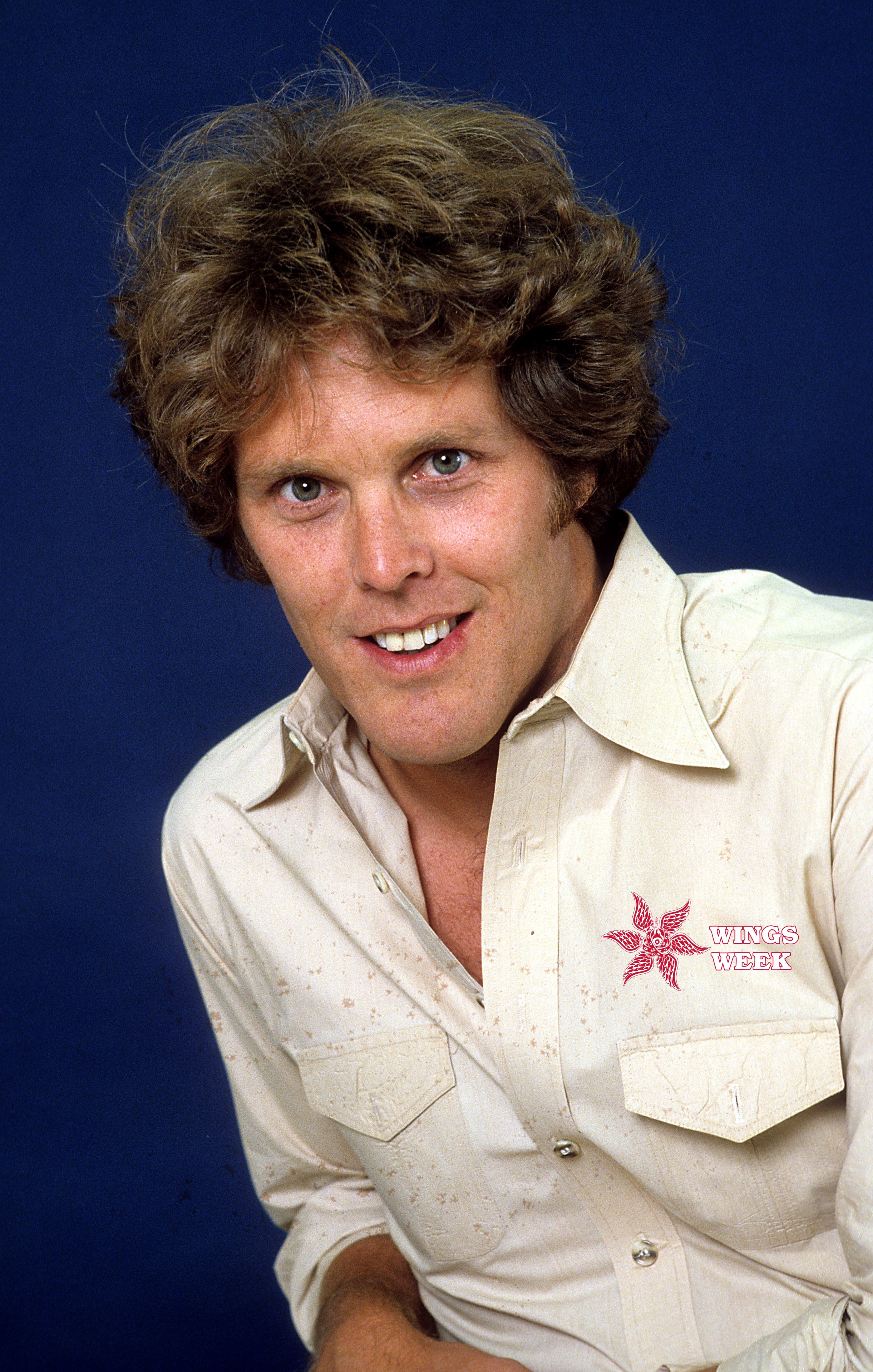When Entertainment Weekly profiled the actor Wings Hauser in the spring of 1991, he had made nine movies in the previous 15 months and was wrapping up production on a tenth. "The 43-year-old actor-director-screenwriter is a bit different from most stars of action flicks," Lois Alter Mark wrote. "Jean Claude Van Damme may have the muscles, Rutger Hauer the attitude, and Michael Pare the sigh-guy good looks; Hauser is unique for his obvious intelligence and his ferocious, good-humored enthusiasm for taking professional gambles." Hauser, who communicates in a very particular and instantly recognizable register of showbiz-specific carnie mysticism, professed to being confused about why he was being profiled at all. "They sent you 3,000 miles to interview me?" he asked Mark. "I’m just another monkey in the tree."
Hauser was 43 years old and had been in 44 films; the Internet Movie Database today has him at 115 credits, with the last of those coming in a 2019 film called Eve N' God: This Female Is Not Yet Rated, which was written and directed by his wife Cali Lili Hauser. (A documentary about Hauser's career called Working Class Actor was funded on Kickstarter last year; it was inspired, at least in part, by a rumor that spread online in 2020 that Hauser had died.) You can read through that list and see a bunch of guest spots on various recognizable network television shows—he played four different roles, over 11 years, in four different episodes of Murder She Wrote—and the years on the television soap The Young And The Restless that established his career and, by Hauser's telling, helped him and his young daughter escape some decently extreme financial precarity. ("I arrived in L.A., swear to God, with $30, a box of Pampers, and a suitcase," he told Mark.) You'll see some smaller parts in bigger films, too; in his one highly memorable scene in Michael Mann's The Insider, Hauser plays the condescending tobacco company lawyer who is instructed by Bruce McGill to "wipe that smirk off your face."
Mostly, though, you will see the sort of movies that Hauser has mostly made, and which were the reason why I knew his name long before I knew who he was. Before I worked in a video store, I spent a lot of time in video stores. And if you are old enough to have been in a video store you would have seen Hauser's name—he's the son of the blacklisted screenwriter Dwight Hauser; swapping "Wings" in for his given name of Gerald was his own invention, during a first career as a musician—a lot, generally above the title and generally in the sort of action films that existed more or less to fill out the shelves at video stores.
The titles of these movies will tell you most of what there is to know about them, and a little bit about Hauser's life in pictures: Bedroom Eyes II, L.A. Bounty, Living To Die, Coldfire, Vice Squad, Street Asylum, Beastmaster II: Through The Portal Of Time. There is a lot of revenge going on here, quite a bit sexual intrigue, a notable amount of scuzz. Hauser recorded a song for the Vice Squad soundtrack, possibly in character (he played a pimp named Ramrod), called "Neon Slime"; Street Asylum was co-written and directed by the prolific porn director Gregory Dark; Watergate co-conspirator G. Gordon Liddy is also in it. L.A. Bounty was photographed by Gary Graver, who was Orson Welles's cinematographer on the incredibly star-crossed production of The Other Side Of The Wind. (Graver also made some porn.)
Hauser was a working actor, and his dedication to the working aspect of it is what makes his IMDB page such a strange and thrilling read. As movies like L.A. Bounty disappeared from shelves—or, more to the point, as those shelves disappeared—they fade in turn from Hauser's page, but he bounced vigorously between leading roles in more lurid stuff and supporting parts in big-ticket television shows as that work became available. Hauser was in five episodes of Roseanne in 1992 and 1993, when it was the most popular TV show in the United States. Those were also the years in which he starred in direct-to-video thrillers Mind, Body, And Soul and Road To Revenge.
Most of these films, and most of Hauser's work in them, has disappeared. Road To Revenge, which is one of the most bizarre films of its era, has not, and highlight reels from Hauser's memorably berserk supporting turn are easy to find online. The film, which I have not seen, has gained entrance into the tranche of accidentally auteurist film statements. "Like the films of Neal Breen, Tommy Wiseau, and Easy Rider: The Ride Home’s Phil Pitzer," the critic Nathan Rabin wrote in 2021, "this is a crazed vanity project from someone who lacks the looks, charisma, magnetism and presence to be a background extra in a real movie yet cast themselves in a lead role as pretty much the single most impressive human being in the history of the universe." It is not quite right to say that Hauser steals the scenes that he shares with the film's writer, director, and star John De Hart, and not just because the scenes themselves barely qualify as such. Hauser is very clearly improvising, and seems to be enjoying himself despite bouncing his performance off a non-professional actor who looks like what I imagine Beavis's dad would look like if Beavis were a real guy. There is no rescuing any of this, but Hauser—whether out of professional pride, or instinct, or boredom—manages to make a weirdo's grandiose home movie watchable through the sheer force of his strange will.
The performance of Hauser's that I admire most, give or take his transcendently punchable turn in The Insider, comes in another difficult to parse vanity project, Norman Mailer's 1987 film Tough Guys Don't Dance. That movie, too, has enjoyed or anyway been granted a strange meme-y afterlife—if you've seen the clip of a stressed-out Ryan O'Neal saying "oh man, oh god, oh man, oh god" while the camera whirls around an empty beach, you have seen some of Tough Guys Don't Dance—and was written and directed by someone who probably shouldn't have been permitted to write or direct a movie. The result is fascinating; it looks great, has a few memorable sequences, and mostly delivers the fantastically deranged/unpleasant high-macho psychosis and general tonal insanity you'd expect from A Film By Norman Mailer. But Mailer had some high-end technical talent on hand for it, and while the presence of an Angelo Badalamenti musical score and John Bailey's cinematography probably wouldn't have rescued Road To Revenge, they go a long way towards making Tough Guys Don't Dance as weirdly watchable as it is.
Hauser does the rest. He's the film's antagonist, an oily and amoral hornball of a local cop named Alvin Luther Regency, who has taken up with O'Neal's ex-wife—"He is a cruel, selfish son of a bitch," Isabella Rossellini's Madeleine says of him. "But I like him"—and seems determined to have sex with and murder every other woman in the film. It's hard to know what kind of direction Hauser was getting from Mailer, although it seems fair to assume that it was minimal, but the result is astonishing. Hauser does some weird whistling and makes odd mouth sounds; there's lots of weirdly steady gaze-work and some unsettling chortling; he leers and glowers and moves his unusually shaped head in uncanny ways. After firing up a joint in his office after hours, Regency tells O'Neal's character a story about a serial killer with evident, unsettling zest. "Why are you telling me this?" O'Neal asks. Hauser straightens up, brightens up: "because it turns me on," he says. "I am a law enforcement officer and it turns me on." Later, drunk and high and about to commit a murder, Regency says, "someday, I'm gonna run for president." A little while after that, in a rage, he slams his head into a door so hard that it breaks.
Is this good? That really depends on your appetite for that kind of thing, although as a connoisseur of weirdo actors going extra-large on outsized material, I am into it. It is enough, in roles like this and in the sort of parts that Hauser has played during his decades as a working actor, to be able to see the choices he makes so clearly, and to get the sense that Hauser is making them with an eye on injecting some life into whatever material he's being paid to enliven. This is the job, finally, but a big part of the thrill of watching Hauser do it comes from the extent to which he refuses to treat it like one, or just the wild energy with which he does that work. "Both sides of my nature are obliged to express themselves," Regency leers near the end of Tough Guys Don't Dance. "The enforcer and the maniac." The character is out of his mind, but the actor is proof that, with enough commitment, a person can make a decent living playing both.






